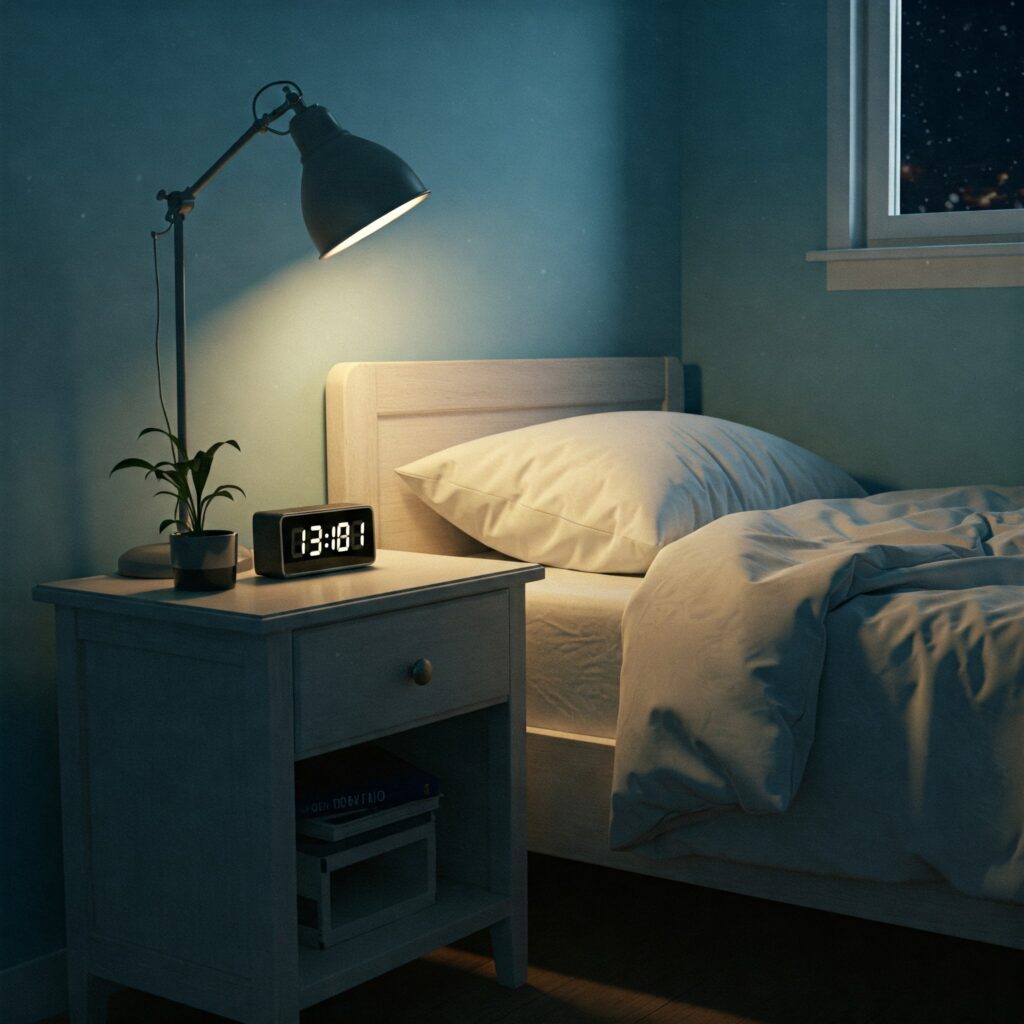Introduction
Are You Sabotaging Your Sleep? We will explore 7 common mistakes to avoid for better sleep. Sleep is essential for our overall well-being, yet many of us unknowingly sabotage our sleep quality through everyday habits. In this blog, we’ll uncover common mistakes that may be preventing you from getting a good night’s rest, from poor sleep hygiene to environmental and lifestyle factors. Read on to learn how you might be sabotaging your sleep—and what you can do about it.
Proper sleep is a cornerstone of a healthy life. Whether you suffer from insomnia, wake up feeling tired, or simply struggle to fall asleep, understanding and addressing these mistakes can lead to transformative changes in your sleep quality. Let’s dive deep into the world of sleep, exploring its importance, the role of circadian rhythms, and effective strategies to avoid sleep-sabotaging habits.
1. Inconsistent Sleep Schedule
The Mistake:
Irregular sleep times confuse your body’s internal clock—the circadian rhythm.
The Impact:
- Disrupts hormone balance (especially melatonin)
- Impairs sleep quality
- Leads to fatigue and poor concentration
What to Do Instead:
- Gradually adjust sleep times if you need a change.
- Stick to a consistent sleep schedule even on weekends.
- Use an alarm clock to maintain a regular waking time.
2. Excessive Screen Time Before Bed
The Mistake:
Using smartphones, tablets, and laptops late into the evening exposes you to blue light, inhibiting the production of melatonin.
The Impact:
- Difficulty falling asleep
- Lower sleep quality overall
- Increased alertness, making it harder for your body to wind down
What to Do Instead:
- Power down electronic devices at least one hour before bed.
- Use blue-light filters or glasses if necessary.
- Replace screen time with reading or relaxation activities.

3. Poor Sleep Environment
The Mistake:
An unsuitable sleep environment—noisy, too bright, or uncomfortable—can severely impact your sleep quality.
The Impact:
- Frequent awakenings during the night
- Interrupted sleep cycles
- Overall sleep disturbances
What to Do Instead:
- Create a dark, quiet, and cool sleep environment (ideally between 60-67°F or 15-19°C).
- Invest in quality bedding, blackout curtains, and a white noise machine if needed.
- Maintain a tidy and calming bedroom atmosphere.
4. Overconsumption of Caffeine and Heavy Meals
The Mistake:
Consuming caffeine or large meals close to bedtime can keep your body in a state of alertness.
The Impact:
- Delayed sleep onset
- Reduced quality of sleep
- Digestive discomfort
What to Do Instead:
- Opt for light snacks if you must eat before bed, like a banana or a small cup of herbal tea.
- Limit caffeine intake after mid-afternoon.
- Avoid heavy or spicy meals in the evening.
5. Neglecting Relaxation and Wind-Down Routines
The Mistake:
Failing to establish a pre-sleep routine signals your brain that it’s not time to rest.
The Impact:
- Inability to fall asleep quickly
- Restless and interrupted sleep
- Heightened stress and anxiety levels
What to Do Instead:
- Consider using calming scents like lavender or chamomile.
- Develop a calming bedtime routine: read, meditate, or take a warm bath.
- Practice deep breathing exercises or gentle stretching.
6. Ignoring Physical Activity and Natural Light Exposure
The Mistake:
A sedentary lifestyle combined with inadequate exposure to natural light during the day can disrupt your circadian rhythms.
The Impact:
- Reduced sleep quality
- Poor mood and decreased energy levels
- Increased risk of sleep disorders
What to Do Instead:
- Engage in outdoor activities that combine exercise with sunlight exposure.
- Incorporate at least 30 minutes of exercise into your daily routine.
- Spend time outside during daylight hours to help regulate your internal clock.

7. Overreliance on Sleep Aids
The Mistake:
While over-the-counter and prescription sleep aids may help short-term, long-term reliance can disrupt your natural sleep patterns.
The Impact:
- Diminished natural sleep drive
- Dependency on medications for sleep
- Potential side effects and withdrawal issues
What to Do Instead:
- Practice cognitive behavioral therapy for insomnia (CBT-I) if necessary.
- Focus on natural sleep hygiene practices.
- Consult a healthcare professional for guidance on non-pharmaceutical approaches to sleep improvement.
How to Build Better Sleep Hygiene
Improving your sleep habits—also known as sleep hygiene—is essential for achieving good quality sleep. Here are some effective strategies:
A. Set a Consistent Sleep and Wake Time
- Keeping your sleep schedule regular helps your body’s internal clock.
- Use a bedtime routine to signal when it’s time to wind down.
B. Create a Comfortable Sleep Environment
- Reduce ambient light and noise.
- Maintain a cool room temperature.
- Invest in a quality mattress and comfortable bedding.
C. Manage Stress Effectively
- Incorporate relaxation techniques such as meditation, deep breathing, or yoga into your daily routine.
- Set aside time for activities that relax your mind, such as reading or listening to calming music.
D. Limit Stimulants Before Bed
- Avoid caffeine, nicotine, and large meals before bedtime.
- Choose herbal teas or warm milk as natural relaxants.
E. Incorporate Natural Sleep Aids
- Use essential oils like lavender in a diffuser to create a soothing environment.
- Consider a small dose of melatonin if recommended by a healthcare professional.
The Role of Circadian Rhythms in Sleep
The circadian rhythm is our internal biological clock that regulates sleep and wake cycles. Maintaining a synchronized circadian rhythm is key to sleeping well. Disruptions—caused by irregular sleep schedules, artificial light exposure, or shift work—can lead to:
- Disoriented sleep patterns
- Lower sleep quality
- Increased stress and fatigue
Synchronize your daily routine with your natural light exposure. For example, wake up with the sunrise and wind down as the sun sets. This natural rhythm cues your brain to produce melatonin and other hormones essential for restorative sleep.
Conclusion
Improving your sleep quality is one of the most impactful steps you can take for your overall well-being. By understanding what sabotages your sleep—from inconsistent schedules to poor sleep environments—and implementing effective sleep hygiene practices, you can unlock the power of rest. Avoiding common pitfalls and embracing natural sleep strategies not only enhances your nightly rest but also improves your mental, emotional, and physical health.
Whether it’s sticking to a consistent sleep schedule, minimizing screen time, or creating a comfortable sleep sanctuary, every positive change you make adds up. Studies show that proper sleep can boost productivity, enhance mood, and even lower the risk of chronic diseases.
Explore more wellness and health-related tips on our blog, such as Unlock the power of rest, tips for better sleep quality, and Men’s Mental Health Month: Understanding Its Importance and Impact. For further reading on sleep science and managing sleep disorders, check out external resources like How to Improve Your Sleep – Mayo Clinic.
Remember, achieving quality sleep is not just about fixing one habit—it’s about redesigning your entire lifestyle to support your natural circadian rhythm. With small, consistent changes, you can transform your nights and, ultimately, your days. So, unlock the power of rest and take control of your sleep today!




Great posts, Regards!
casino en ligne
Many thanks, I appreciate this.
casino en ligne
You’ve made the point.
casino en ligne
Nicely put. With thanks!
casino en ligne
Perfectly voiced certainly. !
casino en ligne
Position very well applied!.
casino en ligne
Many thanks! Lots of forum posts!
casino en ligne
Good information, Kudos!
casino en ligne
Seriously all kinds of wonderful info.
casino en ligne
Good stuff. Kudos!
casino en ligne
Lovart AI Agent is pushing creative boundaries by blending AI with traditional tools-imagine designing a cyberpunk poster with just a few prompts. Exciting for designers and AI enthusiasts alike! Lovart AI Agent
Interesting analysis! It’s true that patterns seem to emerge, but randomness is a powerful force. The exclusive feel of platforms like me777 slot definitely adds to the excitement – a curated experience can be appealing! Still, responsible play is key, always.
Sleep is indeed crucial, yet so many of us neglect it. I found the point about blue light interesting—many of us are guilty of scrolling before bed without realizing the damage. The emphasis on circadian rhythms makes sense, but how can someone with irregular work schedules adjust? I’ve tried sleep routines, but consistency is tough. Do you think naps can compensate for poor nighttime sleep? Also, what’s your take on sleep trackers—helpful or just another distraction? Lastly, could you clarify why caffeine affects sleep even if consumed hours before bed?
We’ve integrated libersave into our regional voucher system. It’s amazing how easily it brings together different providers on one platform. Whith regards, TESTS
I really like your blog.. very nice colors & theme. Did you design this website yourself or did you hire someone to do it for you? Plz reply as I’m looking to construct my own blog and would like to know where u got this from. cheers
Thanks a lot for your lovely message! It’s great to have readers like you who motivate me to keep writing and simplifying things.
Thanks for sharing. I read many of your blog posts, cool, your blog is very good. https://accounts.binance.com/id/register-person?ref=UM6SMJM3
Thank you so much for your lovely comment!
Thanks for sharing. I read many of your blog posts, cool, your blog is very good.
Thank you so much for your lovely comment!
Thanks for sharing. I read many of your blog posts, cool, your blog is very good. https://accounts.binance.info/register-person?ref=IHJUI7TF
Thank you so much for your lovely comment!
I don’t think the title of your article matches the content lol. Just kidding, mainly because I had some doubts after reading the article.
Thanks for the feedback and the good-natured joke—always appreciate readers who keep it light while digging deeper! If specific doubts popped up (e.g., on a mistake’s impact or how to fix it), share them so I can clarify and tweak the post for even better alignment